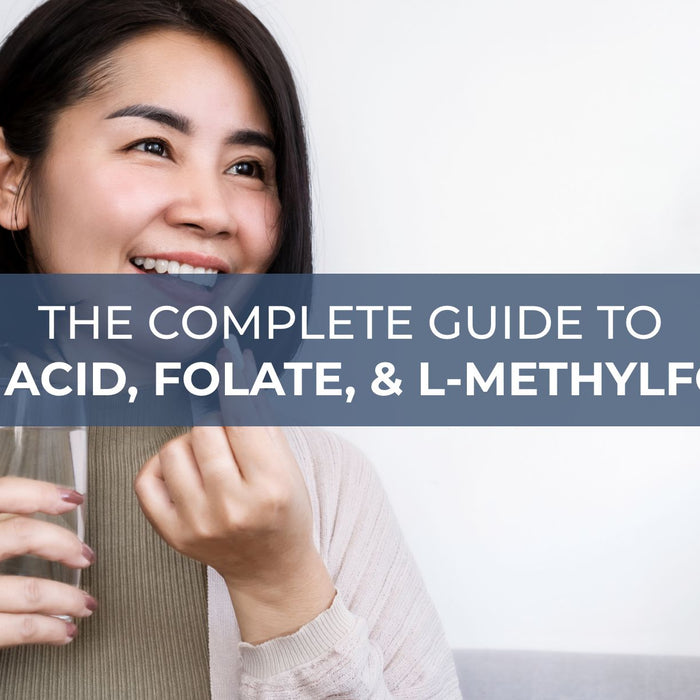
800-547-9812
800-547-9812
800-547-9812
800-547-9812

Sometimes, your body can't handle folate, and you'll experience unpleasant side effects. You may feel frustrated when that happens, not knowing why or how you can fix it. Identifying the underlying problem can help you make the necessary changes to keep folate in your diet so it can do its work. Keep reading to learn more about what may be happening and the steps you can take to increase your chances of tolerating this essential nutrient.

While folate is a vital nutrient supporting numerous bodily functions, it's important to be aware of its potential side effects. These side effects may include:(1)
If you think you are having side effects, please get in touch with your healthcare practitioner immediately.

You may have one or more of several undiagnosed health conditions that make it hard for you to tolerate folate without side effects.
If your body is low in potassium, it might be hard for you to get the full benefits of folate. The electrolytes found in potassium support normal fluid levels within your cells and blood. Your body needs this hydration to use and process folate properly.
If you don't drink enough water, you're not creating an environment that supports folate. Your body needs hydration to support the nutrients it needs. When you don't drink enough water, your gastrointestinal tract and gut microbiome can suffer. Both play vital roles in folate absorption.
Free radicals can damage your DNA through a process called oxidation. Oxidation can damage your cells, weaken your immune system, and lead to oxidative stress. Continued oxidative stress can also decrease the amount of folate absorbed in your gut’s microbiome.(2)
Sometimes, the bacterial balance in your gut’s microbiome can be thrown off, leading to conditions like SIBO. The bacteria in SIBO can create more folate than you can use, leading to excess.(3) The excess can cause many of the side effects you read about earlier in this blog.
When your mood is low, or you feel nervous, your body releases cortisol. Cortisol affects every organ system in your body.(4) For example, when your cortisol level gets high, it affects your nervous system. Your nervous system is also linked to your gastrointestinal and digestive systems. This occurs through the gut-brain axis. They may suffer, too, making it hard for your body to absorb and use nutrients like folate properly.(5)
High histamine levels in the body can also lead to folate intolerance. When there’s too much histamine in the body, it can interfere with how well you handle folate. It can also cause inflammatory responses within your body, including your gut. Chronic gut inflammation can lead to conditions such as inflammatory bowel disease.(6) If you experience inflammation, it can affect how well your body uses folate.
It’s important to avoid taking folic acid and eating folic acid-fortified foods in an attempt to increase your folate levels. Folic acid is not bioavailable, unlike folate, methylfolate, and folinic acid. It may not metabolize properly and can build up in your blood. This build-up can cause your homocysteine levels to rise, and you may not feel too well. Folic acid can also mask a vitamin B12 deficiency, and you may become anemic.
Talk to your healthcare practitioner about what you can do to support the areas above. Once you determine the underlying cause, you may be able to tolerate folate again.

You can support folate to give it the best chance of doing its job without causing trouble. Practices you can start adding to your daily routine include:
Seeking Health has several supplements that support your body’s ability to tolerate folate and minimize the risk of side effects. Our supplements come in various forms, including capsules, powders, and lozenges, making supporting good health tasty and convenient!†
Folate is integral to your health. But if you can't tolerate it, you could have a health condition needing attention. Your healthcare practitioner can help find the problem so you can start making changes. This may mean staying hydrated, avoiding histamine-triggering foods, supporting a healthy gut microbiome, and supporting feelings of calm and well-being. These practices help support folate tolerance.
You can also explore the many supplements Seeking Health has developed with you in mind that support your ability to tolerate folate.†
Leave a comment